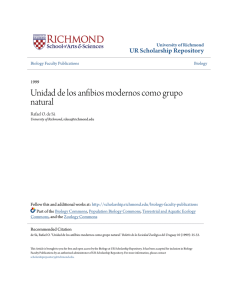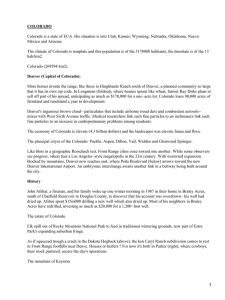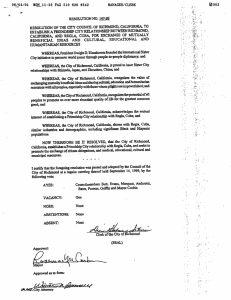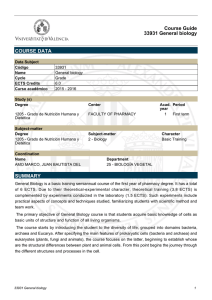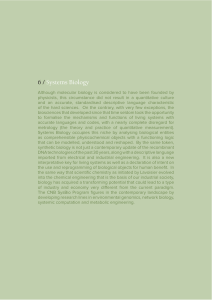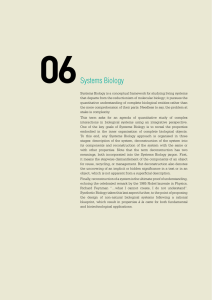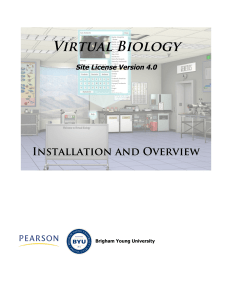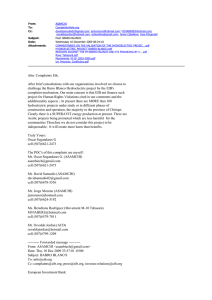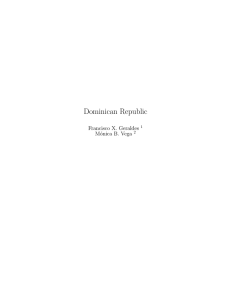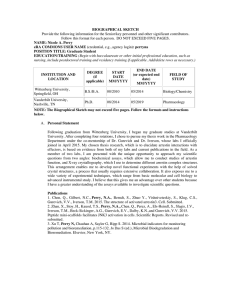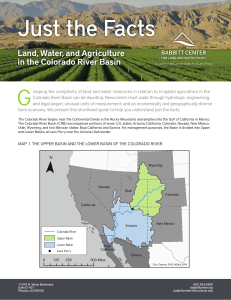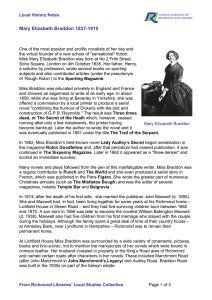Los anfibios del Monumento Natural Barro Colorado, Parque
Anuncio
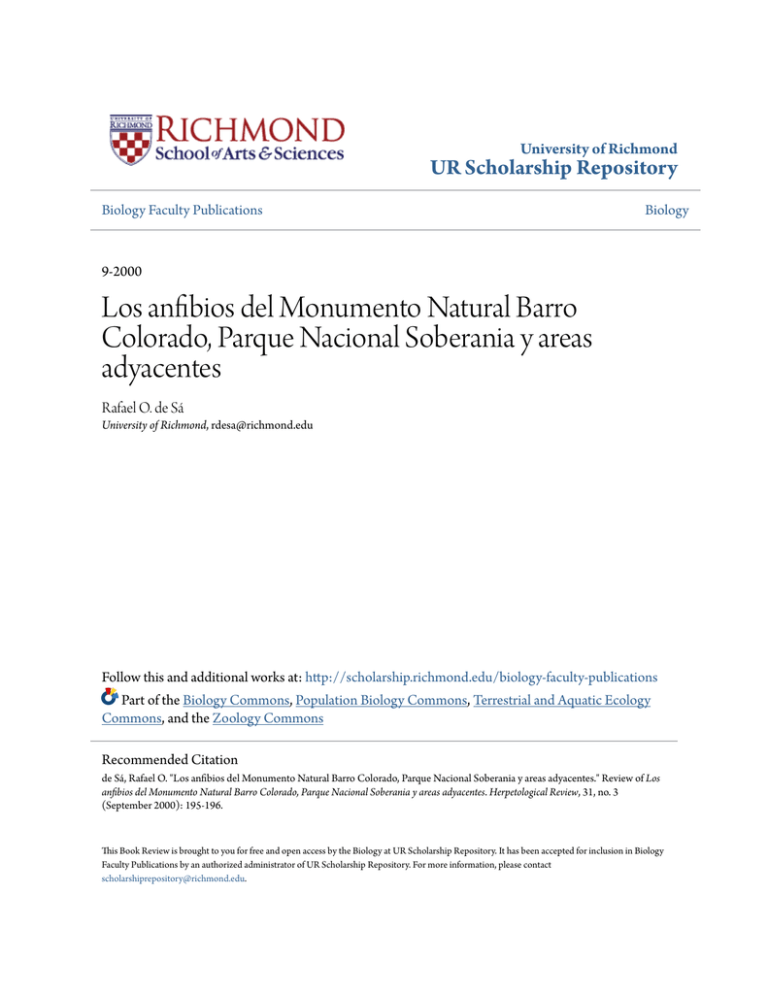
University of Richmond UR Scholarship Repository Biology Faculty Publications Biology 9-2000 Los anfibios del Monumento Natural Barro Colorado, Parque Nacional Soberania y areas adyacentes Rafael O. de Sá University of Richmond, [email protected] Follow this and additional works at: http://scholarship.richmond.edu/biology-faculty-publications Part of the Biology Commons, Population Biology Commons, Terrestrial and Aquatic Ecology Commons, and the Zoology Commons Recommended Citation de Sá, Rafael O. "Los anfibios del Monumento Natural Barro Colorado, Parque Nacional Soberania y areas adyacentes." Review of Los anfibios del Monumento Natural Barro Colorado, Parque Nacional Soberania y areas adyacentes. Herpetological Review, 31, no. 3 (September 2000): 195-196. This Book Review is brought to you for free and open access by the Biology at UR Scholarship Repository. It has been accepted for inclusion in Biology Faculty Publications by an authorized administrator of UR Scholarship Repository. For more information, please contact [email protected]. ll•rp<IO/o[llCYll R t'l'l(M', 2000. 31(3), 195-196. C 2000 by S-0<:1c1y for 1hc S1udy of Arn11hibians and Reptile< Los Anfibios del Monumento Natural Barro Colorado, Parque Nacional Soberania y Areas Adyacentes. The Amphibians of Barro Colorado Nature Monument, Soberania National Park a nd Adjacent Areas. by R. C. fbafiez. A. S. Rand, and C. A. Jarami llo. 1999. Editorial Mizrachi & Pujol S.A., Panama. (Order from: [email protected] or Smithsonian Tropical Research Institute, Bookstore, Apartado 2072, Balboa, Rep. de Panama). 187 pp. Hardcover. US$ 20.00, accompanying CD $15.00 (+ shipping $ 5.00 to Nonh America,$ 6.00 to Soulh America, $ 10 to Europe. and $ 13 everywhere el e). ISBN 9962811171. RAFAEL 0. DE SA Depar1111e11t nf Biology. U11il'ersity l/f Riclr111011d Richmond. Vir~i11ia 23173. USA e·m(li/: rdes(l @riclrmrmd.edu This book focuses on the batrachofauna of Barro Colorado Narure Monument. Soberania National Park and adjacent areas. 1t complements other recent publications on NeotropicaJ amphibians such as tho e by Rodriguez and Duellman ( 1994) on Peru, Achaval and Olmos ( 1995) on Uruguay, and Meyer and Foscer (1996) on Belize. The goal of these books is to reach a wider audience than the more technical batrachofaunal summaries-e.g., Frogs of Boraceia (Heyer 1990). Amphibians ofArgentina (Cei 1985), and Frogs ofthe Genus Eleutherodactylus in Western Ecuador (Lynch and Duellman 1997). These geographically focused guides are especially useful to studen ts, amateur biologists, and co cbe increasingly omnipresent eco1.ourists roaming the Neotropics. However, they are also valuable tools for beginning biology graduate tudent who are looking for an ··organism·· 10 work on, as well as to the trained herpetologist visiting an area for che first time. A distinctive and positive feature of lhis book is its completely bilingual format. This fonnat is targeted toward students and professionals in Latin America and undoubtedly it will be well received there. The authors provide an informati ve map of lhe region with key localities clearly idemified and plotted. Good quality photographs are provided for each of the 62 amphibian species occurring in the area. ln addition, sonograms are presented for 52 out of the 59 frog species considered. Each of lhe specie accounts includes an overall description of adults, wilh a few diagnostic characteristics noted in italic for quick identification, followed by brief descriptions of the calls Herperolog ical Re1•iew 31(3). 2000 195
